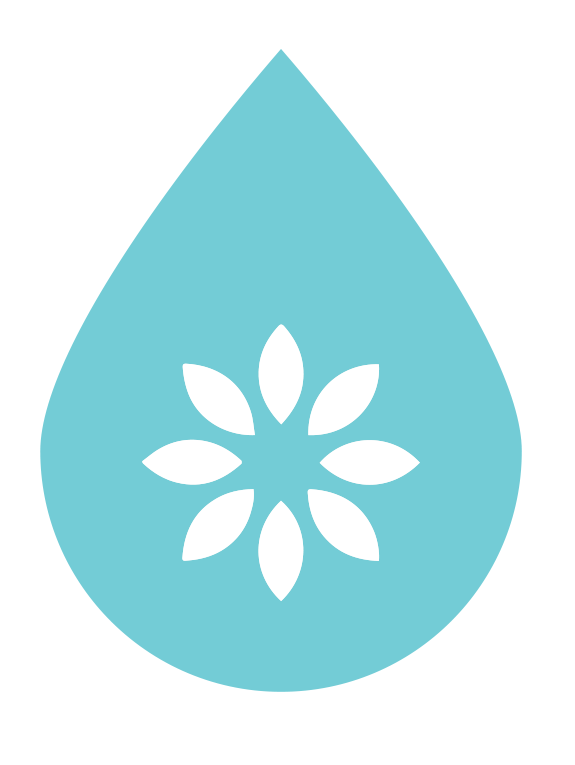
Ready to become a NAHA Level 1 Certified Aromatherapist®?
Are you interested in being professionally qualified as an Aromatherapist?
The Aroma Institute Level One Foundations of Aromatherapy Program is offered ONLINE as well as on location in Nacogdoches, Texas, located in the heart of the Pineywoods of East Texas. Considered the Garden Capital of Texas, Nacogdoches is the perfect place for this guided journey into the intricate world of plant medicine, aromatherapy & essential oils.
Who is this certification for? Everyone!
The continued growth in the interest in complementary and alternative approaches to health has lead to an increased demand for therapeutic aromatherapy based products and practices. Whether you want to open a practice as an aromatherapist, be a consultant, incorporate aromatherapy into an existing healing modality or be empowered to improve the health of you and your family, being a certified aromatherapist open the door to a vast array of opportunities.
I
What will I learn?
This course is designed to empower you to confidently use essential oils to effectively formulate and create aromatherapy blends using a variety of applications for various issues supporting mental, emotional and physical health. You will gain knowledge in ayurveda to assess doshic imbalances , aromatherapy history, safety, quality, application methods and sustainability issues.
By the end of this course students will be able to:
• Evaluate essential oils based on organoleptic qualities
• Utilize foundational Ayurvedic skills & evaluation
techniques to assess constitution & doshic imbalances.
• Formulate & create a variety of effective, unique
Aromatic products for skin-care, respiratory and mental
and emotional wellness
• Assess the quality & purity of essential oils
• Make educated & ethical decisions when buying
essential oils
• Formulate using 5 different blending techniques
• Integrate essential oil into their lives to support wellness
• Choose an appropriate method of application
• Conduct aromatherapy consultations


What will I be able to do as a Certified Aromatherapist?
-
Aromatherapy or Aromatic consultant
-
Aromatherapy business owner
-
Aromatherapy Writer/ Blogger
-
Guest Speaker
-
Spa Consultant/Practitioner
-
Retail Specialist
-
Aromatherapy Educator
-
Integrative Healthcare Practitioner
-
Product Designer
-
Hospice/Palliative care
-
Web Retailer
-
Therapeutic Product line Development
-
Improve the well-being of family & friends
Aromatherapy can also be integrated into other professions:
-
Massage Therapy
-
Spa
-
Asian Bodywork Therapies
-
Herbal Medicine
-
Nursing
-
Hospice Volunteers
-
Yoga
-
Reiki
-
Flower Essence Therapy
-
Integrative Medicine
Course Outline
MODULE ONE
Introduction To Foundations of Aromatherapy
Orientation, Introduction to Aromatherapy.What are Essential
Oils? Aromatherapy as a Healing Art
MODULE TWO
Multicultural History of Aromatherapy
The Role of Aromatic Plant Use Throughout History,.Creating
an Ancient Aromatic Blend
MODULE THREE
Making Sense of Scents
Language of Aroma, Experiential Sensory Training, The Art
of Organoleptic Analysis, Creating blends using Aromatic
Notes
MODULE FOUR
Aromatherapy the Ayurvedic Way
The Five Elements of Nature, Foundational Skills of
Ayurvedic Assessment I ,Aromatic Plants- Essential oils,
Carrier Oils & Their Doshic Effect, Formulating & blending
from an Ayurvedic Perspective
MODULE FIVE
Aromatherapy in Practice I
Client Consultation, Completing a Client Intake Form,
Consent Form & Ayurvedic Assessment, Evaluation and
Aromatherapy Plan
MODULE 6
Botany
Taxonomy ,Plant Classes & Families ,Essential Oil Families & Their Characteristics, Plant Parts & Essential Oils,The Role of Volatile Organic Compounds in Plants
MODULE 7
Materia Medica
Identifying endangered species in the plant kingdom,
Making educated & ethical decisions
21 Essential Ol Monographs
Cedarwood Atlas, Cedrus atlantica, Clary Sage (Salvia sclarea), Cypress (Cupressus sempervirens), Eucalyptus (Eucalyptus globulus), Fennel, Foeniculum vulgare, Frankincense
(Boswellia carteri ) Geranium (Pelargonium graveolens),
Grapefruit ( Citrus paradisi, Ginger Zingiber officinale, Juniper Berry Juniperus communi, Lavender (Lavandula angustifolia), Lemon(Citrus x limon), Lemongrass, Cymbopogon flexuosus,
Patchouli (Pogostemon cablin) Peppermint Mentha x piperita), Roman Chamomile (Anthemis nobilis),Rosemary (Salvia rosmarinus), Sweet Orange (Citrus sinensis), Tea Tree (Melaleuca alternifolia), Vetiver (Vetiveria zizanioides), Ylang Ylang
(Cananga odorata)
20+ Carrier Oil Monographs:
Other Ingredients:
Hydrosols, Gels, Butters, Salts, Clays, Creams & Lotions
MODULE EIGHT
Methods of Extraction
Understand the nature and origins of essential oils, Different methods of extracting essential oils, Processes used, both past and present, to obtain aromatic extracts.
MODULE NINE
Essential Oil Chemistry
Learn about the major chemical families found in essential oils: Therapeutic Properties of constituents
Safety Considerations, Creating chemistry inspired formulas
MODULE TEN
Safety & Quality
Safety considerations, Safe Handling & Storage. Proper Record-keeping & Labeling, Oxidation, GCMS Testing,How to detrmine Quality, Factors to Consider When Purchasing Essential Oils
MODULE ELEVEN
Formulation & Blending
Formulation & Blending Guidelines.
MODULE TWELVE
Methods of Application
Methods of application & Formulas, Choosing the appropriate method of application,
MODULE THIRTEEN
Balancing The Mind & Emotions
Olfactory System, Limbic System, Creating remedies to support mental & emotional well-being
MODULE FOURTEEN
Basic anatomy & physiology, Essential Oils for Common ailments, Creating remedies to support respiratory health,Creating unique artisan aromatic skincare products.
MODULE FIFTEEN
The Business of Aromatherapy
Basic Business Skills for the Aromatherapist, Marketing & Business Development
Resources & Course COMPLETION
Assessment
Final Exam Modules 1 – 15 and Five (5) Case Studies.
Requirements for Certification
This hands on program is interactive, comprehensive and includes a total of 70 total hours of training.In order to receive your official certification from Aroma Institute and call yourself a certified aromatherapist, you will need to:
-
Complete all modules
-
Complete 5 case studies and the final exam with a grade of 85% or better
-
Complete our online Anatomy & Physiology Program ( included in price )or provide proof of completion of a college level Anatomy & Physiology 1 from an accredited institution.
